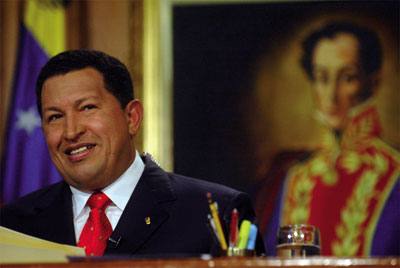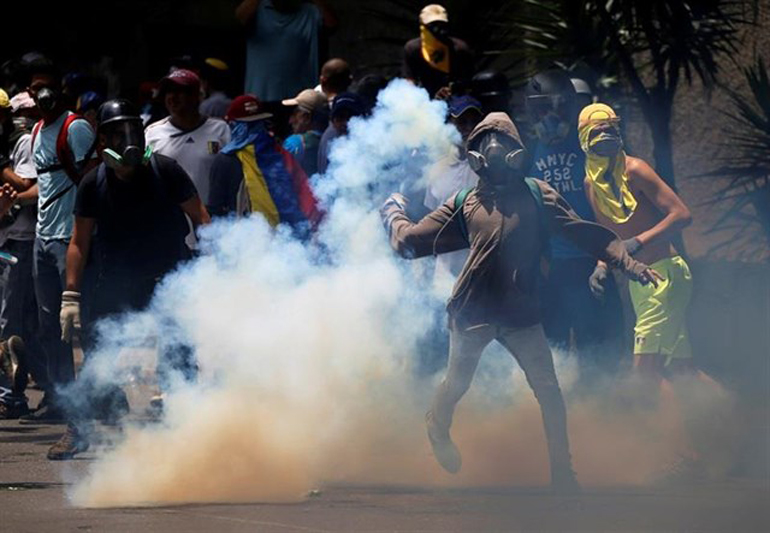President Chávez. President?
- The mere “President Chavez” generates answers on the social networks of the Internet: President? You'll want to say dictator," says an internaut. Or: “Hitler was also elected at the polls.

Chavez was not a dictator, despite what he said recently on a television that tends to offer more and more biased information on matters where thin interests converge on CNN. On three occasions he was a democratically elected president. During his term of office, Venezuelan poverty was halved and illiteracy was almost completely wiped out.
Venezuela became the least unbalanced country in the region between 1999 and 2010, according to the Gini coefficient, being the second South American country to reduce poverty: 49.4% to 27.8%. According to UNESCO data, through education and literacy programmes, 92.5 per cent of the previously uneducated population learned to read in ten years. Starting in 2003, ‘missions’ were launched to provide free basic health care, food with public money and primary and secondary education.
The United Nations Human Development Index also increased to 0.735, placing it as the fourteenth country in the thirty-three countries of South America and the Caribbean, ahead of Peru, Ecuador, Brazil and Colombia. Former US President Jimmy Carter himself stressed that Chavez managed to reduce poverty in Venezuela by half.
After the 2002 coup d'état in Venezuela, the publication of the headlines saying that the Venezuelan people forced Chávez to leave, no one threw a meaculp, even when reality showed that those headlines were wrong. Chávez and his supporters won the 2004 referendum, the regional elections of 2004 and the legislative elections of 2005, as well as the presidential elections of 2006 and 2012, with 62.84% and 54.84%, respectively, and a high percentage of participation.
Mission in South America
The Venezuelan president attacked the privileges of the country’s wealthy white elite, launched policies aimed at the poorest and refused to put Venezuela’s oil into the hands of foreigners. It was closely related to Cuba sending oil to Havana in exchange for qualified doctors, opposed to the FTAA, called it ‘hegemonic and imperialist’ and instead promoted ALBA (Bolivarian Alliance of the Peoples of America).
In a region where foreigners manage politically and economically, he wanted to defend the true independence of his country, give it his own identity, far from the claws of the north and from the international financial power.
It nationalised heavy crude refineries, rejected the conditions proposed by US companies Exxon Mobil and Conoco Philips and left. It once again nationalized the steel company Ternium Sidor, made public the main telecommunications and private electricity companies of the country and expropriated agricultural land to destroy the latifundia. Of course, many did not like all these measures.
As far as the negative contribution is concerned, there are perfectly widespread issues in contrast to the good deeds: inflation, monetary devaluation, the high level of crime on the streets of Venezuela, its personalism or relations with Syria. Enemies have accused him of limiting freedom of expression and accused him of authoritarianism and sectarian.
They will surely remind us again of their rhetoric and their mistakes. It is always advisable to distance, contrast and draw conclusions.
Ten years have passed since 5 March 2013 and we cannot forget this gigantic commander of the peoples.
I don't really like the military. Especially in capitalist and career states. However, there are those who carry within the wishes of the people and have committed themselves to... [+]
Emakume honek txiki-txikitatik jendeari laguntzeko izan duen gogoak... [+]
Venezuelako udal hauteskundeetan Nicolas Maduroren PSUV alderdiak jaso du boto gehien, bozken %49,2. Henrique Ceprilesen MUD koalizioa ez da urruti ibili emaitzetan 700.000 boto gutxiago (%42,7) baina Venezuelako hiri garrantzitsuenetako alkatetzak eskuratu baititu.
Nicolás Maduro atera da garaile igandean Venezuelan egindako hauteskundeetan. Oso boto gutxigatik irabazi dio Henrique Capriles oposizioko hautagaiari: %50,6ak eman dio aldeko botoa, Caprilesen %49,1aren ondoan. Caprilesek esan du emaitzak ez dituela onartuko boto... [+]
Venezuelako jarduneko presidente Nicolas Madurok azaldu du Chavez pozoitu izanaren susmoa dutela. Horregatik, “egia argitzeko bidean”, aukera hori ikertuko dute. Gobernuak azaldu duenez, bertako ikerlariak ez ezik, atzerriko zientzialariak ere gonbidatuko dituzte.
Hugo Chavez Venezuelako presidente ohiaren hileta gaur egingo da Caracasen. Azken egunotan bere gorpua bisitatzera joan den jendetzaren ostean, milaka lagun biltzea espero da gaur. Atzo, akademia militarraren ateetan, zazpi kilometroko ilara osatzera iritsi ziren hari bisita... [+]
Hugo Chavez hil dela iragarri du Venezuelako Gobernuak astearte arratsaldean. 58 urte zituen eta 2011ko ekainean detektatu zioten minbizia. Ordutik lau aldiz operatu dute Habanan. Nicolás Maduro izendatu zuen bere ondorengo eta bera izango da behin behinean presidente... [+]





















